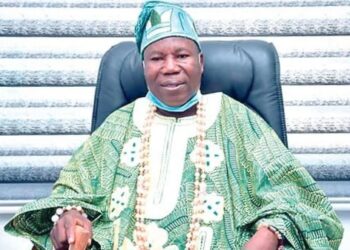WITH the euphoria over recent success recorded in the $1 billion Eurobond offered by Nigeria in the international market yet to settle, it has been discovered that the country would spend at least $1,181 billion (N372.093 billion) to pay fixed interest in the next 15 years.
Even without recent debts including those from African Development Bank (AfDB), World Bank and China Exim Bank, the 2017 budget proposal already has N1.7trillion for debt servicing.
In addition to this, the country paid $35million or N11.02billion to various brokers representing their 3.5 per cent commission in the deal.
However, the naira value of the fixed interest could further escalate in the intervening period should the local currency depreciate further than the N315/US$, which it exchanged for by last weekend.
Interests on bonds are calculated and paid yearly with Nigeria to pay $78,750,000 or N24,806,250,000 every year.
According to details of the third Eurobond floated by Nigeria as released by Debt Management Office (DMO) and Federal Ministry of Finance, the deal has a 15-year maturity period at 7.875 per cent interest per annum.
Proceeds from the bond are part of the spending plans for 2016 budget which has close to N2 trillion deficits.
According to Finance Minister, Kemi Adeosun, the $1billion notes will bear interest at a rate of 7.875 per cent and will mature on February 16, 2032 with a bullet repayment of the principal.
She explained that proceeds of the notes would be deployed to funding capital expenditures in the 2016 budget.
“Nigeria is implementing an ambitious economic reform agenda designed to deliver long-term sustainable growth and reduce reliance on oil and gas revenues while reducing waste and improving the efficiency of government expenditure.
“At the heart of the agenda is a commitment to invest in developing Nigeria’s infrastructure through a target 30 per cent annual budget commitment to capital expenditure. We are establishing the building blocks for long-term growth and making the hard decisions that must be made to reset our economy appropriately.”
“The notes represent the Republic’s third Eurobond issuance, following issuances in 2011 and 2013.
“The notes were approximately eight times oversubscribed with orders in excess of $7.8billion compared to a pre-issuance target of $1.0billion demonstrating strong market appetite for Nigeria.
“This is despite continued volatility in emerging and frontier markets and shows confidence by the international investment community in Nigeria’s economic reform agenda.
“The offering attracted significant interest from leading global institutional investors. The notes will be admitted to the official list of the UK Listing Authority and available to trade on the London Stock Exchange’s regulated market.
“The Republic will apply for the notes to be eligible for trading and listed on the Nigerian FMDQ OTC Securities Exchange and the Nigerian Stock Exchange,” she disclosed.
Provision for debt service is the third largest component of the 2017 fiscal plan, representing 23 per cent or one-fifth of the entire budget of N7.3 trillion.
Some economists have estimated that by the end of 2017, the country would have spent N4.1 trillion on debt servicing since 2015
In 2015, Federal Government made a budget provision of N943 billion for debt service, which rose more than 50 per cent to N1.48trillion in 2016.
The $1billion Eurobond is part of the almost $30 billion three-year debt plan being requested for approval from National Assembly by President Muhammadu Buhari.
Another component of $1.5billion from the $30 billion to rehabilitate Lagos-Ibadan axis of Lagos-Kano Rail Line has also been approved by China Exim Bank.









